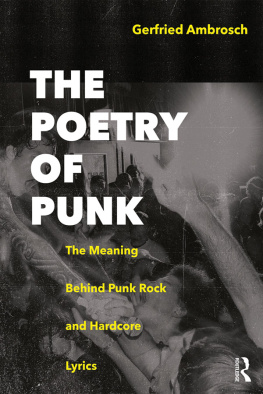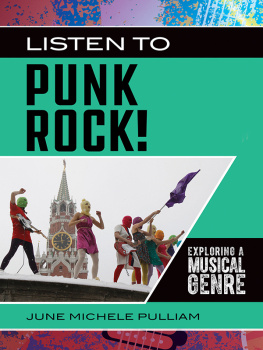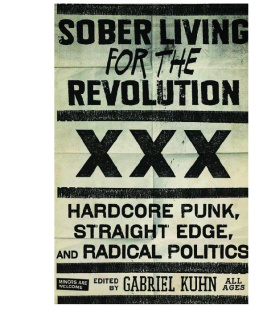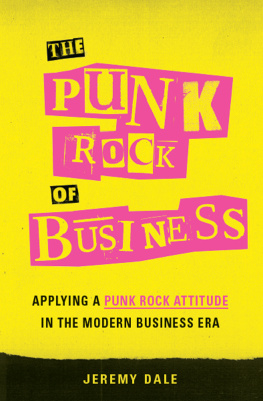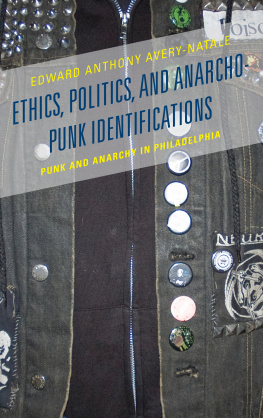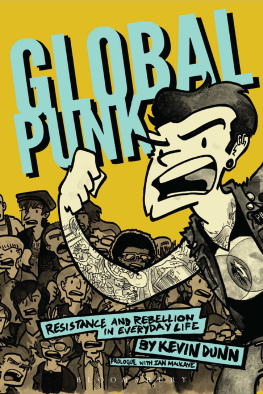Were the flowers in the dustbin/ Were the poison in the human machine.
Sex Pistols, God Save the Queen, 1977
The Sex Pistols crudely poetic sentiment, along with the idealistic belief that a social fact could be addressed by a broken chord sparked the early punk movement. What began as a chaotic explosion, soon evolved into a genuine culture with distinctive values, aesthetics, traditions, and politics, a collective construction connected to a shared space that provides its participants with a meaningful identity. It is important to understand that punk is a non-monolithic culture, meaning that not all participants share the same values, look the same, or like the same kind of music, though they may all self-identify as punk.
The political science scholar Kevin Dunn likens punk to a flag, describing it as something many people feel passionate about, but have a hard time agreeing on its shared meaning. Due to the emergence of different interpretations almost immediately after the movements inception, the larger punk communityif there ever was onebecame increasingly balkanized, and a multitude of self-defined punk identities were formed. What connects them are their common cultural roots, shaped by pioneering groups such as the Stooges, the Dictators, the Ramones, and the Sex Pistols. It is this shared genealogy that I refer to when I speak of punk as though it were a singular, unified entity (which, for reasons of simplification, is sometimes necessary). In this multifaceted sociocultural realm, lyrical expression the poetry of punk has taken on an important role, attesting to the relevancy of poetry as a means of human self-expression in modern times.
This book is an investigation into the Anglophone punk culture, specifically in the UK and the US, where punk originated in the mid-1970s, its main focus being on the song lyrics written and performed by punk rock and hardcore artists. It takes as its starting point the assumption that these lyrics, as performed literature, can be analyzed like poems while also taking into account their musical, performative, and political dimensions. Moreover, it considers these songs in a wider cultural and literary context. The songs discussed here have been chosen based on two criteria: relevance and representativeness. I should add, however, that other punk experts may have selected different songs and bandssave the obvious fewbased on the exact same criteria.
It is crucial to understand that punk is not simply a genre of music, although music does play an integral role within it. A cultivation of social dissent and cultural transgression, punk is a part of, as well as a counter project to, popular culture. Defining itself in opposition to the dominant culture and ideology of mainstream capitalist society, it is widely recognized as a counterhegemonic identity, albeit an inherently diverse and internally inconsistent one. Punk bands have, at any rate, produced an abundance of poetic textssome crude, some elaboratein the form of song lyrics.
These lyrics are the epistemological DNA of punk and an ideal means by which to trace the developments and explain the conflicts and schisms that have shapedand continue to shapepunk scenes. This books subtitle, The Meaning behind Punk Rock and Hardcore Lyrics , refers not only to the lyrical messages of punk songs, but, more broadly, to their sociocultural functionsthat is, to their discursive and meta-discursive role in the formation, preservation, and reproduction of punk identities and communities.
Punk lyrics, which can be described as the larger communitys collective poetic voice, come in many different forms. Their themes range from personal issues such as emotional distress to radical politics. Some songs are intended to entertain, some to express strong feelings, some to spread awareness, and some to foment unrest. Most punk rock and hardcore lyrics contain an element of confrontation, of kicking against the pricks. But are they poetry?
Given that they encompass the formal properties of poetry, punk lyrics should be defined as such, albeit with some qualifications. As scripted verbal performances, song lyrics possess a poetic life of their own. However, they exist not for their own sake but in order to enrich music with semantic and poetic substance, and they stand in a reciprocal relationship with the music they augment. Paratextual elements, commonly found on LP sleeves and in CD booklets, act as additional framing devices, contextualizing the listeners experience. Punk vocal styles are often deliberately inarticulate, rendering it next to impossible for the audience to decipher the lyrics. Hence, the listener must become a reader in order to understand the message. The lyrics become a form of literature. This inarticulacy is not incidental. As a part of punks aesthetic of dissent, it is meaningful in and of itself.
I shall demonstrate that punk lyrics are highly relevant to our discourse of poetry, politics, and culture. Many of them are literary gems hidden deep in some of the worlds best-sheltered underground music scenes. The insight gained from bringing these texts to light, it is safe to say, is of considerable pertinence to various academic fields, from literary studies to sociology to political science to cultural studies. Considering that punk has been subject to a considerable amount of scholarly investigation, starting with Dick Hebdiges Subculture: The Meaning of Style in 1979, the lack of attention given to its lyrical scope can only be described as shockingly negligent. My goal is to change that. As literary scholar Lars Eckstein points out: Any literary or cultural history that excludes lyrics from its scope presents a dramatically lopsided view of verbal art, and, by extension, modern culture.
This book should also be of interest to anyone who identifies as punk, or moves in punk circles, and cares about this unique culture on some deeper level. The study of punk as an expression of human creativity and cooperation, an attempt to meaningfully deal with the challenges arising from the human condition, is to be understood as a contribution to the project of furthering humanitys understanding of itself.
It is easy enough to dismiss punks rebellious gestures as clich. However, this tired sentiment is often perpetuated by commentators who lack the insight necessary to pass such a judgment on an entire culture. The same applies to the trite but widespread notion that real punk died in its infancy. This book offers a look beyond the stereotype. Most developments in punk take place under the radar of the mainstream media, rendering it an underground milieu largely inaccessible to outsiders. I would go so far as to argue that any comprehensive analysis must, therefore, come from within.
My decades-long personal involvement in the punk scene as a musician and songwriter should, therefore, not be perceived as a cause for concern (bias) but, instead, as a valuable asset. Punk is an incredibly complex culture which one cannot explore by simply watching from the sidelines. My examination is based on, but by no means limited to, song analyses. Seventeen interviews, conducted by this author, with renowned musicians and other punk activists serve as additional sources of insight into the inner workings of the Anglophone punk culture.
A stylistic note may be in order. As regards citations, it should be noted here that all emphases are in the original, unless specifically stated otherwise. For simplicity, I refer to the speaker, or poetic voice, in song lyrics by the pronoun that corresponds to the authors gender (presentation), unless the text itself indicates otherwise.
Punk songs, sometimes referred to by the periphrasis three chords and the truth, mean a great deal to those who write them and to those who sing along. They provide comfort, moral guidance, encouragement, food for thought, and inspiration for a vast and diverse number of people. The following statement by comic artist Jim Kettner illustrates just how seriously lyrics are taken in the punk scene/community:

